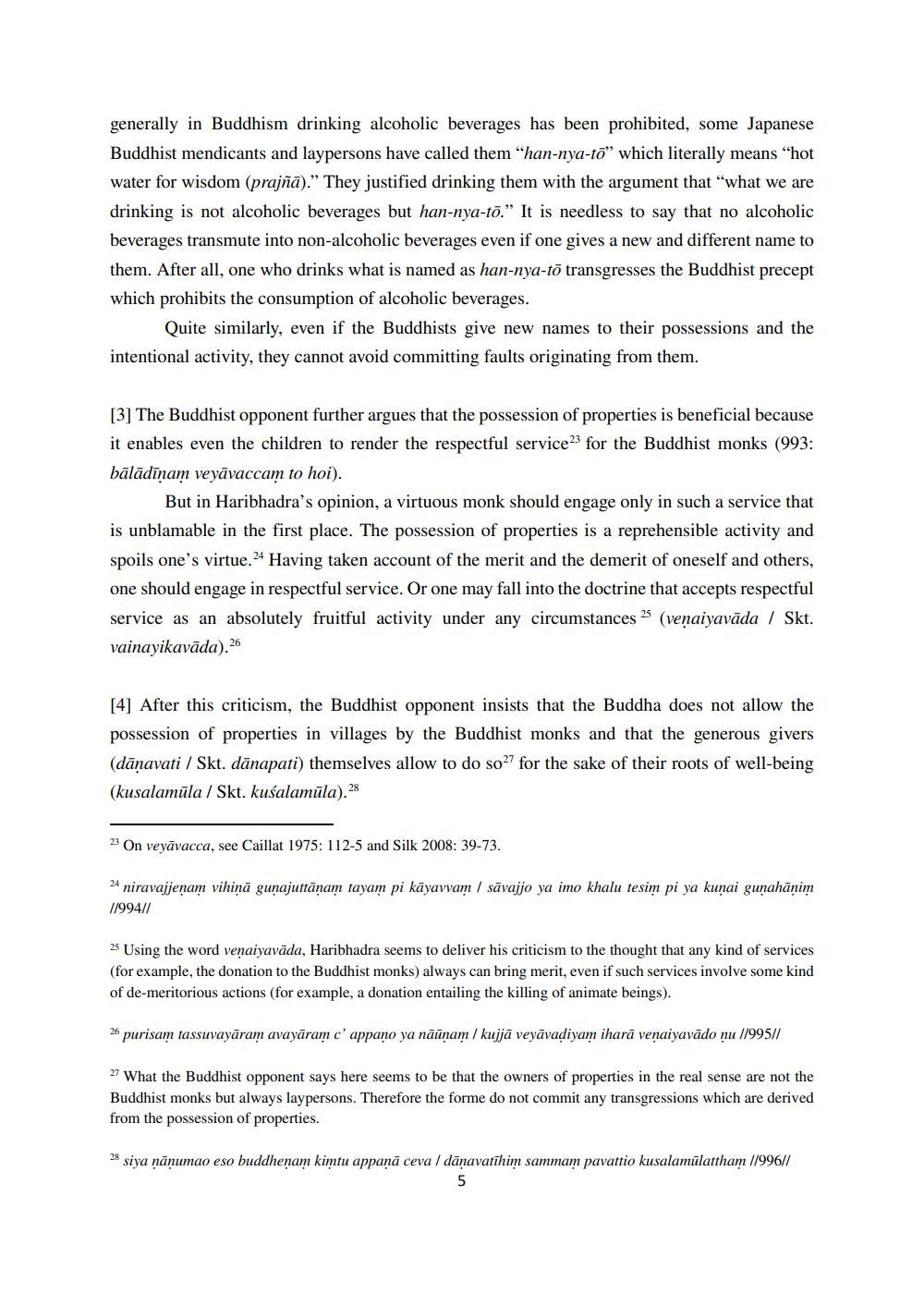Book Title: Haribhadra On Property Ownership Of Buddhist Monk Author(s): Yutaka Kawasaki Publisher: Yutaka Kawasaki View full book textPage 5
________________ generally in Buddhism drinking alcoholic beverages has been prohibited, some Japanese Buddhist mendicants and laypersons have called them "han-nya-to" which literally means "hot water for wisdom (prajñā).” They justified drinking them with the argument that “what we are drinking is not alcoholic beverages but han-nya-to.” It is needless to say that no alcoholic beverages transmute into non-alcoholic beverages even if one gives a new and different name to them. After all, one who drinks what is named as han-nya-to transgresses the Buddhist precept which prohibits the consumption of alcoholic beverages. Quite similarly, even if the Buddhists give new names to their possessions and the intentional activity, they cannot avoid committing faults originating from them. [3] The Buddhist opponent further argues that the possession of properties is beneficial because it enables even the children to render the respectful service for the Buddhist monks (993: bālādīnam veyāvaccam to hoi). But in Haribhadra's opinion, a virtuous monk should engage only in such a service that is unblamable in the first place. The possession of properties is a reprehensible activity and spoils one's virtue. 24 Having taken account of the merit and the demerit of oneself and others, one should engage in respectful service. Or one may fall into the doctrine that accepts respectful service as an absolutely fruitful activity under any circumstances 25 (venaiyavāda / Skt. vainayikavāda).26 [4] After this criticism, the Buddhist opponent insists that the Buddha does not allow the possession of properties in villages by the Buddhist monks and that the generous givers (dāņavati / Skt. dānapati) themselves allow to do so27 for the sake of their roots of well-being (kusalamūla/Skt. kuśalamūla).28 23 On veyāvacca, see Caillat 1975: 112-5 and Silk 2008: 39-73. 24 niravajjenam vihiņā gunajuttānam tayam pi kāyavvam / sāvajjo ya imo khalu tesim pi ya kunai gunahānim 1/9941/ 25 Using the word venaiyavāda, Haribhadra seems to deliver his criticism to the thought that any kind of services (for example, the donation to the Buddhist monks) always can bring merit, even if such services involve some kind of de-meritorious actions (for example, a donation entailing the killing of animate beings). 26 purisam tassuvayāram avayāram c' appano ya nāūnam / kujjā veyāvadiyam iharā venaiyavādo nu //995/1 27 What the Buddhist opponent says here seems to be that the owners of properties in the real sense are not the Buddhist monks but always laypersons. Therefore the forme do not commit any transgressions which are derived from the possession of properties. 28 siya nānumao eso buddhenam kimtu appaņā ceva / dānavatīhim sammam pavattio kusalamūlattham //996//Page Navigation
1 ... 3 4 5 6 7 8 9 10 11 12
